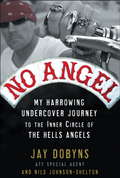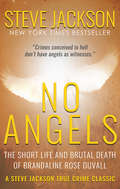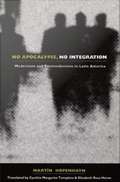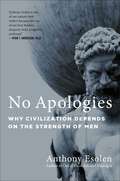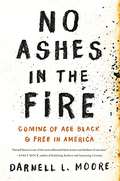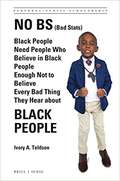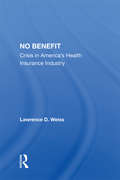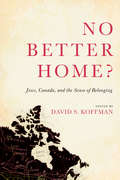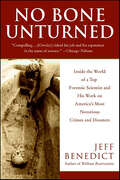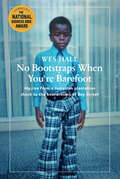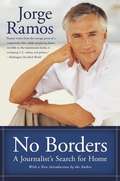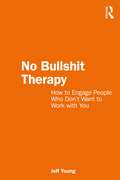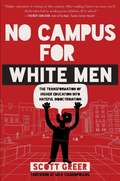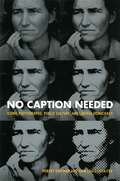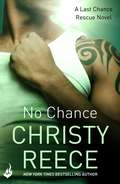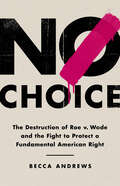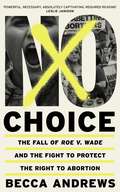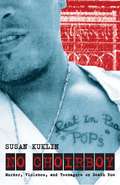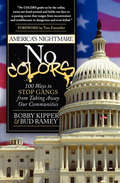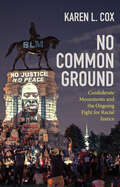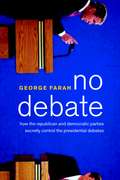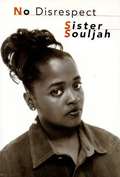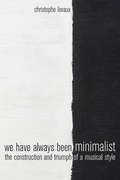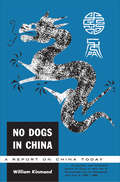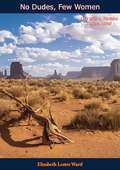- Table View
- List View
No Angel: My Harrowing Undercover Journey to the Inner Circle of the Hells Angels
by Jay Dobyns Nils Johnson-SheltonHere, from Jay Dobyns, the first federal agent to infiltrate the inner circle of the outlaw Hells Angels Motorcycle Club, is the inside story of the twenty-one-month operation that almost cost him his family, his sanity, and his life.Getting shot in the chest as a rookie agent, bartering for machine guns, throttling down the highway at 100 mph, and responding to a full-scale, bloody riot between the Hells Angels and their rivals, the Mongols–these are just a few of the high-adrenaline experiences Dobyns recounts in this action-packed, hard-to-imagine-but-true story.Dobyns leaves no stone of his harrowing journey unturned. At runs and clubhouses, between rides and riots, Dobyns befriends bad-ass bikers, meth-fueled “old ladies,” gun fetishists, psycho-killer ex-cons, and even some of the “Filthy Few”–the elite of the Hells Angels who’ve committed extreme violence on behalf of their club. Eventually, at parties staged behind heavily armed security, he meets legendary club members such as Chuck Zito, Johnny Angel, and the godfather of all bikers, Ralph “Sonny” Barger. To blend in with them, he gets full-arm ink; to win their respect, he vows to prove himself a stone-cold killer.Hardest of all is leading a double life, which has him torn between his devotion to his wife and children, and his pledge to become the first federal agent ever to be “fully patched” into the Angels’ near-impregnable ranks. His act is so convincing that he comes within a hairsbreadth of losing himself. Eventually, he realizes that just as he’s been infiltrating the Hells Angels, they’ve been infiltrating him. And just as they’re not all bad, he’s not all good.Reminiscent of Donnie Brasco’s uncovering of the true Mafia, this is an eye-opening portrait of the world of bikers–the most in-depth since Hunter Thompson’s seminal work–one that fully describes the seductive lure criminal camaraderie has for men who would otherwise be powerless outsiders. Here is all the nihilism, hate, and intimidation, but also the freedom–and, yes, brotherhood–of the only truly American form of organized crime.From the Hardcover edition.
No Angels: The Short Life And Brutal Death Of Brandaline Rose Duvall (Steve Jackson True Crime Classic)
by Steve JacksonNew York Times–Bestselling Author: The true story of a teenager&’s horrific murder by a vicious Denver gang—and the investigation and trials that followed. A little before midnight on May 30, 1997, fourteen-year-old Brandy DuVall waited at a bus stop in the Denver area for a ride back to her grandparents&’ home after spending the evening at a friend&’s. She was wearing a bright-red Chicago Bulls jersey bearing the number of her favorite player, Michael Jordan. It was the shirt that attracted the five young Bloods gang members in the car that circled the block and came back to where she stood. Why Brandy got in the car that night would remain an unanswered question. Was it voluntary? Was she abducted? Whatever the answer, the consequence was an unimaginable nightmare of torture, rape, and murder at the hands of a vicious Denver street gang, particularly &“Pancho,&” a violent psychopath, and other members of the Deuce-Seven. The crime, the investigation, the betrayals and deals cut with the devil, and the subsequent court cases—including four murder trials and two death penalty hearings—tore apart families, and affected all who were caught up in the brutal crime and its aftermath. No Angels delves into the circumstances that would forever change the fate of Brandy, two previously inseparable brothers, and the mothers who sat on opposite sides of the courtroom and yet shared a common grief. &“[Steve Jackson] writes with both muscle and heart.&” —Gregg Olsen, #1 New York Times-bestselling author of If You Tell.
No Apocalypse, No Integration: Modernism and Postmodernism in Latin America
by Martín HopenhaynWinner of the Premio Iberoamericano Book Award in 1997 (Spanish Edition) What form does the crisis of modernity take in Latin America when societies are politically demobilized and there is no revolutionary agenda in sight? How does postmodern criticism reflect on enlightenment and utopia in a region marked by incomplete modernization, new waves of privatization, great masses of excluded peoples, and profound sociocultural heterogeneity? In No Apocalypse, No Integration Martín Hopenhayn examines the social and philosophical implications of the triumph of neoliberalism and the collapse of leftist and state-sponsored social planning in Latin America. With the failure of utopian movements that promised social change, the rupture of the link between the production of knowledge and practical intervention, and the defeat of modernization and development policy established after World War II, Latin American intellectuals and militants have been left at an impasse without a vital program of action. Hopenhayn analyzes these crises from a theoretical perspective and calls upon Latin American intellectuals to reevaluate their objects of study, their political reality, and their society's cultural production, as well as to seek within their own history the elements for a new collective discourse. Challenging the notion that strict adherence to a single paradigm of action can rescue intellectual and cultural movements, Hopenhayn advocates a course of epistemological pluralism, arguing that such an approach values respect for difference and for cultural and theoretical diversity and heterodoxy. This essay collection will appeal to readers of sociology, public policy, philosophy, cultural theory, and Latin American history and culture, as well as to those with an interest in Latin America's current transition.
No Apologies: Why Civilization Depends on the Strength of Men
by Anthony EsolenNo more apologies for being a man! Best-selling social commentator Anthony Esolen draws on timeless wisdom to defend the masculine virtues of strength, drive, ambition, and determination in building and upholding civilization itself.It&’s time to end the apology tour for traditional masculinity. A generation of young men and boys are being raised in self-loathing, taught that the core of their identity as men is not only abhorrent, but the fountainhead of humanity&’s ills. In No Apologies, veteran author and professor, Anthony Esolen, issues a powerful defense of the virtues of masculine strength. From the thankless brute force that erected buildings, paved roads, and cleared ground, to the boundless energy of youth that compelled centuries of global exploration, to the father&’s embodied authority as protector, director, and exemplar of law and justice, Esolen shows how civilization has rested upon the strength of men. Wizened, accessible, and powerfully articulated, Esolen draws on two millennia of historical thought, citing giants like Plato, Augustine, Aquinas, Twain, Solzhenitsyn, and others in a vigorous and timely defense of the masculine ethos.
No Ashes in the Fire: Coming of Age Black and Free in America
by Darnell L MooreFrom a leading journalist and activist comes a brave, beautifully wrought memoir. <p><p> When Darnell Moore was fourteen, three boys from his neighborhood tried to set him on fire. They cornered him while he was walking home from school, harassed him because they thought he was gay, and poured a jug of gasoline on him. He escaped, but just barely. It wasn't the last time he would face death. <p> Three decades later, Moore is an award-winning writer, a leading Black Lives Matter activist, and an advocate for justice and liberation. In No Ashes in the Fire, he shares the journey taken by that scared, bullied teenager who not only survived, but found his calling. Moore's transcendence over the myriad forces of repression that faced him is a testament to the grace and care of the people who loved him, and to his hometown, Camden, NJ, scarred and ignored but brimming with life. Moore reminds us that liberation is possible if we commit ourselves to fighting for it, and if we dream and create futures where those who survive on society's edges can thrive. <p No Ashes in the Fire is a story of beauty and hope-and an honest reckoning with family, with place, and with what it means to be free.
No BS: Black People Need People Who Believe in Black People Enough Not to Believe Every Bad Thing They Hear About Black People (Personal/Public Scholarship #4)
by Ivory A. ToldsonWhat if everything you thought you knew about Black people generally, and educating Black children specifically, was based on BS (bad stats)? We often hear things like, "Black boys are a dying breed," "There are more Black men in prison than college," "Black children fail because single mothers raise them," and "Black students don't read." In No BS, Ivory A. Toldson uses data analysis, anecdotes, and powerful commentary to dispel common myths and challenge conventional beliefs about educating Black children. With provocative, engaging, and at times humorous prose, Toldson teaches educators, parents, advocates, and students how to avoid BS, raise expectations, and create an educational agenda for Black children that is based on good data, thoughtful analysis, and compassion. No BS helps people understand why Black people need people who believe in Black people enough not to believe every bad thing they hear about Black people.
No Benefit: Crisis In America's Health Insurance Industry
by Lawrence D. WeissThe private health insurance industry is unable to provide nearly 40 million Americans with basic health care. Relying on data from a wide range of publications about this secretive industry, Lawrence D. Weiss investigates the causes of the industry's problems and analyzes the social effects of the growing crisis. The causes include excessive overhead costs, widespread inefficiency, and exemptions from antimonopoly regulations; the social effects include small businesses' inabilities to provide adequate coverage for their employees, the reluctance of many carriers to insure certain social groups, and the disproportionate burden on minorities. Addressing these dilemmas, Lawrence D. Weiss offers a timely and important analysis of the health insurance crisis in America.
No Better Home?: Jews, Canada, and the Sense of Belonging
by David S. KoffmanThis book begins with an audacious question: Has there ever been a better home for Jews than Canada? By certain measures, Canada might be the most socially welcoming, economically secure, and religiously tolerant country for Jews in the diaspora, past or present. No Better Home? takes this question seriously, while also exploring the many contested meanings of the idea of "home." Contributors to the volume include leading scholars of Canadian Jewish life as well as eminent Jewish scholars writing about Canada for the first time. The essays compare Canadian Jewish life with the quality of life experienced by Jews in other countries, examine Jewish and non-Jewish interactions in Canada, analyse specific historical moments and literary texts, reflect deeply personal histories, and widen the conversation about the quality and timbre of the Canadian Jewish experience. No Better Home? foregrounds Canadian Jewish life and ponders all that the Canadian experience has to teach about Jewish modernity.
No Bone Unturned: Inside the World of a Top Forensic Scientist and His Work on America's Most Notorious Crimes and Disasters
by Jeff Benedict“A fast and exciting read. . . . This survey of Owsley’s career will appeal to both science and legal buffs.” --Publishers WeeklyThe story of the Smithsonian’s brilliant forensic anthropologist and the 9,000-year-old skeleton that sparked his landmark lawsuit against the U.S. governmentWhen he is not studying ancient skeletons, Doug Owsley is enlisted by the State Department and the FBI to identify remains. He has worked on some of the most notorious tragedies in recent history—Bosnia, Waco, 9/11 and Jeffrey Dahmer’s victims among them. When an anthropologist in Kennewick, WA, calls Owsley to help study a 9,000 year-old caucasoid skeleton, he gets caught up in a battle against the Justice Department and Indian tribes who claim the skeleton is Native American and should be buried and not analyzed.Owsley, backed by scientists worldwide, files suit against the government and is now at the forefront of a landmark case—currently pending a ruling in the U.S. District Court—that may alter repatriation laws and have a significant impact on the classic views of Native Americans, migration patterns, and anthropology, as well as our understanding of prehistory.
No Bootstraps When You're Barefoot: My rise from a Jamaican plantation shack to the boardrooms of Bay Street
by Wes HallFrom one of Canada's most successful business leaders, the founder of the BlackNorth Initiative and the newest and first Black Dragon in the Dragon's Den comes a rags-to-riches story that also carries a profound message of hope and change.Wes Hall spent his early childhood in a zinc-roofed shack, one of several children supported by his grandmother. That was paradise compared to the two years he lived with his verbally abusive and violent mother; at thirteen, his mother threw him out, and he had to live by his wits for the next three years. At sixteen, Wes came to Canada, sponsored by a father he'd only seen a few times as a child, and by the time he was eighteen, he was out of his father's house, once more on his own. Yet Wes Hall went on to become a major entrepreneur, business leader, philanthropist, and change-maker, working his way up from a humble position in a law firm mailroom by way of his intelligence, his curiosity, and his ability to see opportunities that other people don't.When people expected his thick Jamaican accent, lack of money and education, not to mention the colour of his skin, to shut down his future, Wes was not to be stopped. He is still overturning expectations to this day. Well aware of racism and injustice, his lack of privilege and the other roadblocks to his success, Wes has always believed that he can walk along any cliff edge without falling. His book teases out and shows how he fostered that resolve in himself, exploring his childhood and the milestone successes and failures of his career in order to share not only how he stopped himself from falling, but survived and thrived, and then dedicated himself to bringing his family and his community along with him. Now, with the founding of the BlackNorth Initiative, Wes takes aim at ending systemic anti-Black racism. It's a huge goal, but one he's tackling with heart, soul, smarts, and every connection he's made in an extraordinary career that's taken him to the centre of the Canadian establishment. Throughout his life he's resisted sinking into despair or getting lost in anger; now he wants to tell truth to power and pave a path forward.
No Borders
by Jorge RamosFrom his childhood days in Mexico, to his experience of censorship in government-owned Mexican media companies, his student years in LA, and his early beginnings as a journalist in the USA, Ramos gives us a personal and touching account of his life. With a series of intimate portraits of the leading political figures he has interviewed over the years (Castro, George W. Bush, Chavez, Clinton) and the places he has been, he reflects on world events and how they have changed, not only humanity, but his own life.
No Bullshit Therapy: How to engage people who don’t want to work with you
by Jeff YoungDo you have clients who do not want to be helped? Clients who don’t trust you, your profession, or your service? Clients who don’t want to change despite your best efforts? Then No Bullshit Therapy (NBT) is for you! Most simply, NBT is about being authentic. Many people are cajoled, pressured, or mandated to see therapists, counsellors, and other helpers. Hence, they are reluctant, suspicious, and resistant to being helped. This puts professionals in the difficult position of trying to help someone who does not want to be helped. To make things worse, there are few practice models designed to engage people who don’t want to be engaged. NBT creates a context for mutual honesty and directness in working relationships. Creating a context for mutual honesty and directness can be refreshingly effective, especially with people who are suspicious of counselling or distrustful of the counsellor. When combined with warmth and care, honesty and directness can enhance co-operation, connection, and trust, especially if the practitioner avoids jargon and acknowledges constraints to the work. NBT is ideal for working with people who: • Don’t like therapy or the idea of therapy (even if they’ve never had it) • Don’t trust warm fuzzy “do-gooders” or “psychologisers” • Are suspicious of services because they have experienced trauma and have had abusive institutional experiences or unsatisfactory treatment in the past • Don’t see themselves as a client, don’t agree with the referrer’s description of them or their problems, and appear to not want to change Practical and engaging, this book is an essential guide for therapists, counsellors, and other allied-health professionals who are looking for a more effective way to connect with reluctant clients and ensure they get the support they need. It may also help you create more robust relationships at work and at home.
No Campus for White Men: The Transformation of Higher Education Into Hateful Indoctrination
by Milo Yiannopoulos Scott GreerNo Campus for White Men shines a bright light on the growing obsession with diversity, victimization and identity politics on today's college campuses, and shows how it is creating an intensely hostile and fearful atmosphere that can only lead, ultimately, to ever greater polarization in American society. Across the country, ugly campus protests over speakers with dissenting viewpoints, as well as a preoccupation with "micro-aggressions," "trigger warnings," "safe spaces" and brand-new "gender identities," make it obvious that something has gone terribly wrong with higher education. For years, colleges have pursued policies favoring students based not on their merit, but on their race, gender, and sexual orientation. The disturbingly negative effects of this culture are now impossible to deny. Scott Greer's investigative work links such seemingly unrelated trends as "rape culture" hysteria and Black Lives Matter to an overall campus mindset intent on elevating and celebrating leftist-designated "protected classes" above everyone else - while intimidating, censoring, and punishing those who disagree with this perversely un-American agenda. In No Campus for White Men, Greer broadens the usual media focus well beyond coverage of demonstrations by easily offended college students, to spotlight the darker forces at work behind the scenes that are feeding higher education's metastasizing crisis - and how all this results in sustained animosity, first and foremost, toward white men. Greer also documents how this starkly totalitarian culture is not isolated to higher education, but is rather a result of trends already operating in society. Thus, he shows, today's campus madness may eventually dominate much more of America if it is not addressed and reversed soon.
No Caption Needed: Iconic Photographs, Public Culture, and Liberal Democracy
by Robert Hariman John Louis LucaitesThe gaunt woman, her face lined with care, stares past the camera while three children cling to her amidst the Great Depression. A soldier catches a nurse in a powerful embrace on VJ Day in Times Square as onlookers smile approvingly. A naked Vietnamese girl runs in terror from the napalm attack engulfing the road behind her. Plumes of smoke streak outward in silent array as the Challenger explodes in the blue air over Florida. A solitary Chinese man stands calmly before the barrel of a tank at Tiananmen Square.
No Chance: Last Chance Rescue Book 4 (Last Chance Rescue #4)
by Christy ReeceFor fans of Maya Banks, Nina Bruhns, Pamela Clare and Julie Ann Walker. The fourth novel in New York Times bestselling author Christy Reece's addictive Last Chance Rescue series of sexy suspense and thrilling adventure. Skylar James told a lie to the man she married, and eight years later she still bitterly regrets the deception. Unknown to Skylar, her husband, Gabe Maddox, now lives in the dangerous shadows of elite operatives who rescue victims. When Skylar tries to save a naïve young beauty, kidnappers come after her. For Gabe, Skylar had been his last shot at trust and love. But news of her disappearance battens down his anger and launches him into action. Saving Skylar is Gabe's only chance for peace and his last chance for happiness.Don't miss the other pulse-pounding novels in the Last Chance Rescue series, Rescue Me, Return To Me, Run To Me, Second Chance, Last Chance, Sweet Justice, Sweet Revenge, and Sweet Reward, or the steamy southern suspense of the Wildefire series by Christy's alter-ego Ella Grace which begins with Midnight Secrets.
No Choice: The Destruction of Roe v. Wade and the Fight to Protect a Fundamental American Right
by Becca AndrewsNamed one of Mother Jones' BOOKS WE NEEDED IN 2022 An in-depth look at the legacy of Roe v. Wade, and on-the-ground reporting from the front lines of the battle to protect the right to choose The pieces started to fall in 2019 when a wave of anti-abortion laws went into effect. Georgia, Ohio, Mississippi, Louisiana and Kentucky banned abortion after six weeks of pregnancy, while Missouri banned the procedure at eight weeks. Alabama banned all abortions. The die was cast. And on June 24, 2022, the Supreme Court overturned Roe v. Wade and, abortion immediately became illegal in 22 states. No Choice begins by shining a light on the eerie ways in which life before Roe will be mirrored in life after. The wealthy and privileged will still have access, low-income people will suffer disproportionately, and pregnancy will be heavily policed. Then, Andrews takes us to the states and communities that have been hardest-hit by the erosion of abortion rights in this country, and tells the stories of those who are most at risk from this devastating reversal of settled law. There is a glimmer of faint hope, though. As the battle moves to state legislatures around the country, the book profiles the people who are doing groundbreaking, inspiring work to ensure safe, legal access to this fundamental part of health care.
No Choice: The Fall of Roe v. Wade and the Fight to Protect the Right to Abortion
by Becca Andrews'Powerful, deftly researched. A necessary and urgent deep-dive' ELINOR CLEGHORN'Brilliantly researched and enlightening' STYLIST, Books You Need to Know This Autumn'Absolutely captivating' LESLIE JAMISON----------------------------------------------------------------------------------------------On Friday 24 June 2022, women's rights suffered an extraordinary and unprecedented blow. Five US Supreme Court justices made a decision that will impact millions of lives for years to come.In this gripping blend of reportage and history, journalist Becca Andrews tells the story how we have arrived at this devastating turning point.NO CHOICE introduces the origin of abortion and its practice in global cultures, before focusing its gaze on the battle that has been waged for the past century across America, shining a light on the eerie ways in which life before Roe will be mirrored in life after. The wealthy and privileged will still have access, low-income people will suffer disproportionately, and pregnancy will be heavily policed.Taking us to the frontlines - to clinics, courtrooms, local communities, charities - Andrews tells the deeply moving stories of those who have had abortions, and those who have fought - and are fighting - for the right to abortion. There is a glimmer of faint hope, though. As the battle moves to state legislatures around the country, the book profiles the people who are doing ground-breaking, inspiring work to ensure safe, legal access to this fundamental part of healthcare.
No Choirboy: Murder, Violence, and Teenagers on Death Row
by Susan KuklinNo Choirboy takes readers inside America's prisons, and allows inmates sentenced to death as teenagers to speak for themselves. In their own voices--raw and uncensored--they talk about their lives in prison, and share their thoughts and feelings about how they ended up there. Susan Kuklin also gets inside the system, exploring capital punishment itself and the intricacies and inequities of criminal justice in the United States. This is a searing, unforgettable read, and one that could change the way we think about crime and punishment. End items include an excellent glossary, author's notes, further reading list, and organizations with their websites.
No Colors: 100 Ways to Stop Gangs from Taking Away Our Communities
by Bobby Kipper Bud RameyA vital guide to keeping gangs and youth violence out of your community—including one hundred ways to keep your kids safe. No community wants to admit it has a gang problem, but the unwillingness to address youth violence can have tragic consequences. This book—and the significant research on which it is based—represents many voices, experiences, and community efforts in the battle against our national gang crisis. It is an inspiring guide to preventing the epidemic of youth violence from destroying our families and eroding our neighborhoods. No Colors gives citizens, community and business leaders, elected and appointed officials, educators, and clergy a set of best practices to help municipalities stand against gangs. The good news is that many cities are winning this battle for the minds and hearts of our kids. These success stories are highlighted to help you shape your community&’s plan. Find out how you can &“gang proof&” your schools and recognize early warning signs, broaden your role beyond punishment to rewarding interventions, and use faith-based initiatives to save your children. At the very least, this book will inform you. It will likely enlighten you. And if you are open to its compelling message, it may even move you to action.
No Common Ground: Confederate Monuments and the Ongoing Fight for Racial Justice (A Ferris and Ferris Book)
by Karen L. CoxWhen it comes to Confederate monuments, there is no common ground. Polarizing debates over their meaning have intensified into legislative maneuvering to preserve the statues, legal battles to remove them, and rowdy crowds taking matters into their own hands. These conflicts have raged for well over a century--but they've never been as intense as they are today. In this eye-opening narrative of the efforts to raise, preserve, protest, and remove Confederate monuments, Karen L. Cox depicts what these statues meant to those who erected them and how a movement arose to force a reckoning. She lucidly shows the forces that drove white southerners to construct beacons of white supremacy, as well as the ways that antimonument sentiment, largely stifled during the Jim Crow era, returned with the civil rights movement and gathered momentum in the decades after the Voting Rights Act of 1965. Monument defenders responded with gerrymandering and "heritage" laws intended to block efforts to remove these statues, but hard as they worked to preserve the Lost Cause vision of southern history, civil rights activists, Black elected officials, and movements of ordinary people fought harder to take the story back. Timely, accessible, and essential, No Common Ground is the story of the seemingly invincible stone sentinels that are just beginning to fall from their pedestals.
No Debate: How the Republican and Democratic Parties Secretly Control the Presidential Debates
by George FarahBroadcast to tens of millions of Americans, the presidential debates are the Super Bowl of politics. A good performance before the cameras can vault a contender to the front of the pack, while a gaffe spells national embarrassment and can savage a candidacy. The slim margin for error has led the two major parties to seek--and achieve, under the aegis of the bipartisan Commission on Presidential Debates--tight control through scripting, severe time limits, and the exclusion of third-party candidates. In No Debate, author and lobbyist George Farah argues that these staged recitations make a mockery of free and fair presidential elections. With urgency and clarity, this book reviews the history of presidential debates, the impact of the debates since the advent of television, the role of the League of Women Voters, the antidemocratic activity of the CPD, and the specific ways that the Republicans and Democrats collude to remove all spontaneity from the debates themselves. The author presents the complete text of a previously unreleased secret document between the Republicans and Democrats that reveals the degree to which the two parties--not the CPD--dictate the terms of the debates. In the final chapter, Farah lays out a compelling strategy for restoring the presidential debates as a nonpartisan, unscripted, public events that help citizens--not corporations or campaign managers--decide who is going to run the White House.
No Disrespect
by Sister SouljahRapper, activist, and hip-hop rebel, Sister Souljah possesses the most passionate and articulate voice to emerge from the projects. Now she uses that voice to deliver what is at once a fiercely candid autobiography and a survival manual for any African American woman determined to keep her heart open and her integrity intact in 1990s America.
No Documents, No Escape: The Construction and Triumph of a Musical Style
by Christophe LevauxRising out of the American art music movement of the late 1950s and 1960s, minimalism shook the foundations of the traditional constructs of classical music, becoming one of the most important and influential trends of the twentieth century. The emergence of minimalism sparked an active writing culture around the controversies, philosophies, and forms represented in the music’s style and performance, and its defenders faced a relentless struggle within the music establishment and beyond. Focusing on how facts about music are constructed, negotiated, and continually remodeled, We Have Always Been Minimalist retraces the story of these battles that—from pure fiction to proven truth—led to the triumph of minimalism. Christophe Levaux’s critical analysis of literature surrounding the origins and transformations of the stylistic movement offers radical insights and a unique new history.
No Dogs in China: A Report on China Today
by William KinmondIn 1949 the bamboo curtain clattered down over one-fifth of the people of the world. In one sudden twist of history, a vast community that had been militarily and politically allied with the West was transmuted into the ideological foe of everything the free world stands for. With the surprise intervention by Red China in Korea, a new alignment of world powers was confirmed and the bamboo curtain had been fastened down securely. If the people of China were inadequately known in the years before the Red Revolution, all free intercourse between East and West was now interrupted completely. Chinese life could be described only by released westerners who had viewed it through prison bars, or it had to be interpreted from the incredibly distorted releases of the communist propaganda bureaus. Suddenly, in 1956, China offered to open its doors to western reporters wishing to come and see what was really happening in their country. In the spring of 1957, William Kinmond, Staff Reporter for the Toronto Globe and Mail, entered Red China with assurances that he might travel where he wished and report what he liked—or disliked. This is his report on China at this moment in history.
No Dudes, Few Women: Life with a Navaho Range Rider
by Elizabeth Lester WardThe story of a woman’s life lived among her Navajo neighbors— a life lived with sparkling humor, and a sympathetic understanding of the natives, set against 25,000 square miles of cold, heat, wind, dust and loneliness. The author’s husband was a range-rider on the Navaho reservation during the stock reduction program of the Indian Bureau.
